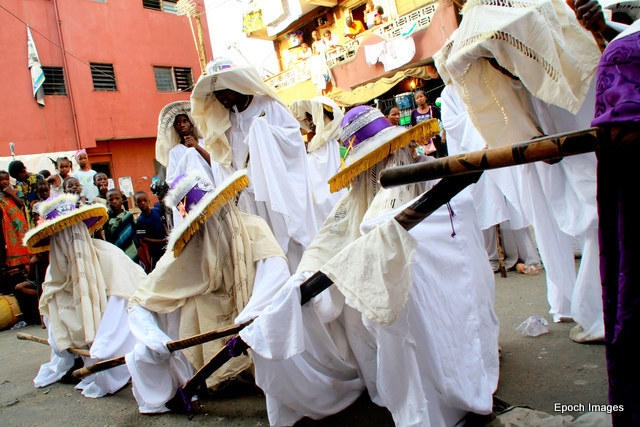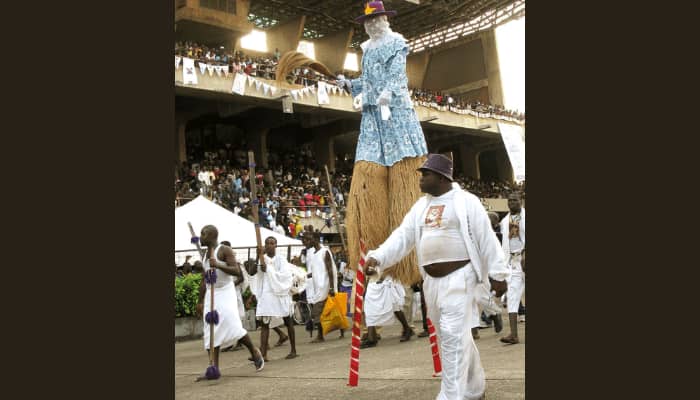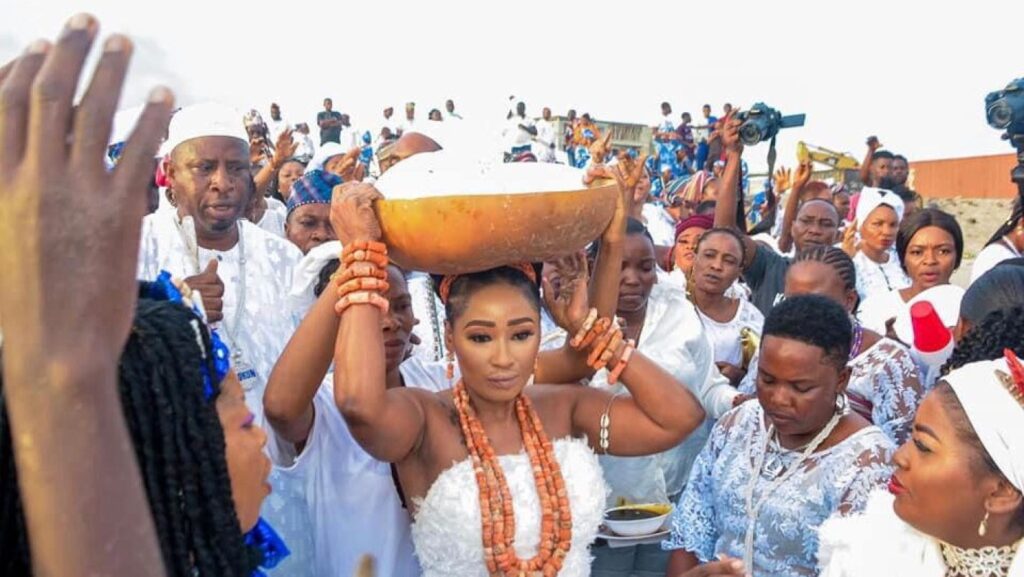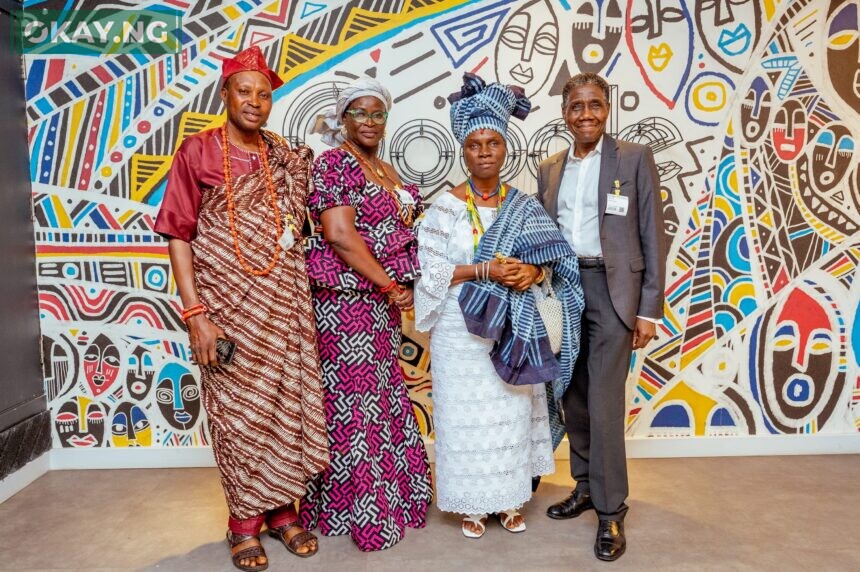Eko Club: A Beacon of Tradition:
Nigeria’s Eko Club stands as a shining example of a social club committed to heritage preservation. Founded in 1974, Eko Club’s primary mission is to promote the culture, traditions, and social unity of the Eko people, a subset of the Yoruba ethnic group residing in Lagos. With over four decades of dedication, the club has become an integral part of the city’s cultural landscape.
Cultural Festivals as a Bridge to the Past
Eko Club’s commitment to preserving Nigeria’s cultural heritage is evident through its vibrant festivals and events. The club annually organizes the Eko Cultural Festival, a grand showcase of traditional music, dance, and artistry. This event serves as a bridge between generations, where the younger members can immerse themselves in the rich traditions of their ancestors. Through such festivals, Eko Club not only keeps these traditions alive but also encourages active participation from the community.
Community Engagement and Education:
Social clubs like Eko Club understand that heritage preservation goes beyond mere celebration. Education plays a pivotal role in this journey. Eko Club organizes workshops, lectures, and seminars, where members and the wider community can learn about the history, language, and customs of the Eko people. This commitment to education ensures that future generations are well-informed about their heritage.
Preserving Language and Oral Traditions:
Languages are the cornerstone of any culture. Eko Club takes pride in promoting the Yoruba language and preserving oral traditions. Through language classes and storytelling sessions, they ensure that the Eko dialect remains alive and thriving. This endeavor extends beyond the club’s premises, as members actively engage with schools and institutions to encourage the study of the language.
The Future of Heritage Preservation:
As we navigate the 21st century, the efforts of social clubs like Eko Club serve as a beacon of hope for heritage preservation. These clubs are more than just gatherings; they are guardians of tradition, ambassadors of culture, and advocates for a brighter, culturally rich future.
Heritage preservation through social clubs, exemplified by Eko Club, is a vital endeavor that ensures Nigeria’s rich cultural tapestry remains vibrant and relevant. By celebrating traditions, engaging with the community, and prioritizing education, these clubs act as stewards of Nigeria’s cultural legacy, keeping the flame of tradition burning brightly for generations to come. In an ever-changing world, they remind us that our roots are what make us strong, and our traditions are the ties that bind us.


Yoruba Tennis Club in Heritage Preservation:
Yoruba Tennis Club is dedicated to not only preserving but also celebrating Nigeria’s colorful cultural heritage. It is situated in the bustling city of Lagos, stands as an emblematic example of how social clubs can play a pivotal role in safeguarding and celebrating Nigeria’s cultural legacy. Founded decades ago, this club serves as a haven for Yoruba traditions, acting as a bridge between the past and the present.
Cultural Festivals and Ceremonies:
One of the ways the Yoruba Tennis Club keeps the flame of tradition burning bright is by hosting and participating in various cultural festivals and ceremonies. From the exuberant celebration of Odunde Festival to the solemn observance of Egungun, these events provide a platform for club members to immerse themselves in age-old customs and rituals. The vibrant costumes, rhythmic drumming, and enchanting dances during these events not only evoke a sense of nostalgia but also educate the younger generation about their roots.
Language and Storytelling:
Language is a cornerstone of any culture, and the Yoruba Tennis Club recognizes this. Members come together to learn and teach the Yoruba language, ensuring that the language continues to thrive. Storytelling sessions, where elders regale the younger generation with tales of Yoruba folklore, are a cherished tradition. Through these gatherings, the oral traditions of the Yoruba people are kept alive, passing down wisdom, history, and values.
Art and Craftsmanship:
Nigerian art and craftsmanship are renowned worldwide, and the Yoruba Tennis Club takes great pride in showcasing these talents. Members are encouraged to explore and hone their artistic skills, resulting in exhibitions that celebrate the intricacies of Yoruba beadwork, wood carving, and textile art. These exhibitions serve not only as a testament to the club’s dedication but also as a means of supporting local artisans.
Community Outreach:
Preserving heritage is not an insular endeavor for the Yoruba Tennis Club. They actively engage with the wider community, organizing workshops and seminars on Yoruba culture, history, and traditions. By opening their doors to the public, they create a space for dialogue and mutual understanding, fostering a sense of unity and pride in Nigeria’s rich cultural tapestry.
The Yoruba Tennis Club is just one shining example of the many social clubs across Nigeria dedicated to the preservation and celebration of the nation’s cultural heritage. Through cultural festivals, language preservation, art exhibitions, and community outreach, these clubs are ensuring that the flame of tradition continues to burn brightly.
In an ever-changing world, it’s heartening to see these social clubs serving as guardians of Nigeria’s cultural identity. By keeping traditions alive, they not only honor the past but also pave the way for a brighter, culturally enriched future. Through their efforts, they send a powerful message: heritage preservation is not just a responsibility; it’s a joyous celebration of what makes Nigeria unique and extraordinary.

A Glimpse of Ikoyi Club: Where Tradition Meets Modernity
The Legacy:
Nestled in the heart of Lagos, Ikoyi Club has stood as a beacon of tradition for over 80 years. Established in 1938, it has been a hub where generations of Nigerians have come together to celebrate their cultural heritage. The club’s historic significance is evident in its elegant architecture and timeless atmosphere, creating an ideal setting for preserving Nigeria’s traditions.
Cultural Extravaganzas:
Ikoyi Club exemplifies how social clubs actively contribute to heritage preservation. Throughout the year, they host a myriad of events that pay homage to Nigerian culture. From traditional dance performances to art exhibitions showcasing indigenous talent, these clubs serve as vital platforms for artists and enthusiasts alike to connect with their roots.
Unity in Diversity:
Nigeria’s diversity is its strength, and social clubs reflect this unity in diversity. Members from various ethnic backgrounds converge under a common roof, fostering cross-cultural exchanges that help preserve and celebrate a kaleidoscope of traditions.
Passing the Torch:
One of the most commendable aspects of social clubs like Ikoyi Club is their dedication to passing on cultural knowledge to younger generations. Through mentorship programs, workshops, and cultural seminars, they ensure that time-honored practices are not lost to the sands of time.
Embracing the Old and the New:
Social clubs adeptly balance tradition and modernity. While preserving age-old customs, they also encourage innovation and creativity. These clubs are a testament to the fact that heritage preservation doesn’t mean stagnation; it means evolving while staying true to one’s roots.

Inspiring Pride:
By providing a platform for Nigerians to embrace their heritage, social clubs like Ikoyi Club inspire a profound sense of pride. Members and visitors alike leave with a renewed appreciation for Nigeria’s cultural richness.
In addition, in a world where globalization threatens to overshadow local traditions, social clubs stand as guardians of Nigeria’s cultural treasures. They serve as vibrant hubs where heritage preservation is not a mere slogan but a lived experience. By celebrating Nigeria’s diversity and passing on the torch of tradition, these clubs ensure that the tapestry of Nigeria’s cultural heritage remains vivid and enduring for generations to come. So, whether you’re a member or simply a curious visitor, join hands with social clubs and be part of this inspiring journey towards keeping Nigerian traditions alive.
